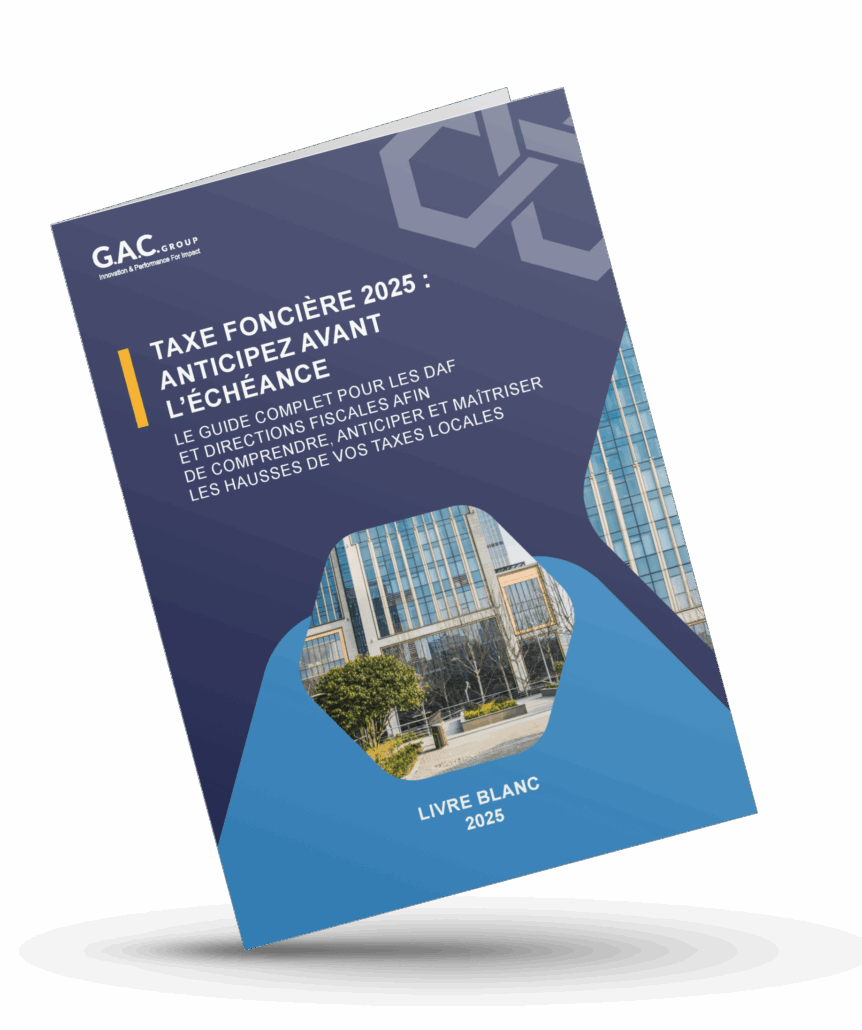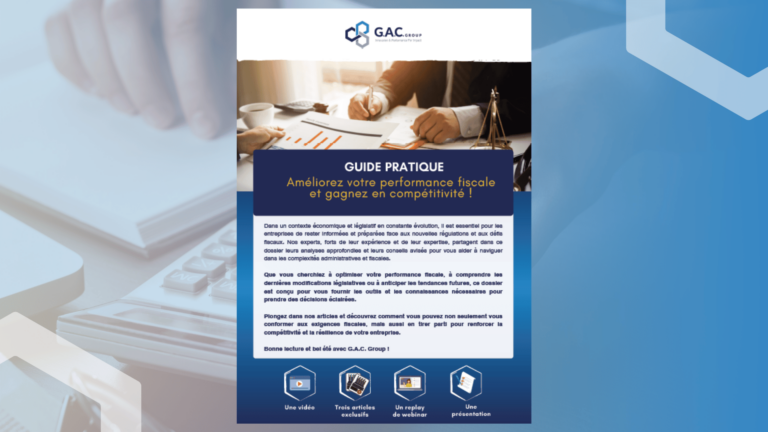- For a constructive interpretation of article 1416 of the CGI... -
On Wednesday December 18, 2024, the 9th and 10th chambers of the Conseil d'Etat examined in open session the appeal lodged by the company SVS La Martiniquaise against the decision of the Conseil d'Etat in the case of the company SVS La Martiniquaise.judgment no. 21PA01288 handed down by the Paris Administrative Court of Appeal on July 13, 2022. The choice of this enlarged panel of nine judges is a sign that the issues raised by this case are serious, and that they will give rise to a decision whose jurisprudential importance will undoubtedly be noted.
In its appeal, SVS La Martiniquaise argued in substance that the Paris Administrative Court of Appeal had erred in law in ruling that, while the prior claim it had lodged on July 27, 2012 had been lodged within the deadline insofar as it related to an additional assessment of property tax on built-up properties levied in 2011, this claim was late insofar as it sought to challenge the original assessment levied in 2010.
Hearing report
During the Conseil d'Etat's examination of the case on December 18, 2024, the public rapporteur began by pointing out that the general time limit for lodging a claim opened up to the taxpayer by the a of article R.* 196-2 of the Livre des procédures fiscales (LPF) expires, in the case of local direct taxes, on December 31 of the year following that in which the tax assessment was levied. It thus noted that the initial assessment of property tax on built-up properties assigned to the company SVS La Martiniquaise in respect of 2010 having been assessed during 2010, the time limit for lodging a claim under ordinary law therefore expired on December 31, 2011.
Secondly, it noted that the special claim period provided for in article R.* 196-3 of the LPF allows the taxpayer, in accordance with the case law of the Conseil d'Etat, to contest the additional tax corresponding to the rectification to which he has been subject, as well as the initial tax liability for the same tax year and, in the case of local taxation, from the same commune.
It went on to point out that the Paris Administrative Court of Appeal had rejected the application of this rule in accordance with case law. Batipro Company of January 21, 2016 (no. 385 395), according to which the procedure for rectifying omissions or deficiencies in taxation relating to property tax on built-up properties, resulting from the combined application of the provisions of articles L. 175 of the LPF and 1508 of the General Tax Code (CGI), cannot be considered as a procedure for recovery or rectification within the meaning of article R.* 196-3 of the LPF entitling the holder to the special claim period provided for by this article.
It recalled that article L. 175 of the LPF gives the Administration the option of rectifying at any time, without being subject to the ordinary statute of limitations provided for in article L. 173 of the same Book, the omissions and deficiencies resulting from certain failures by the taxpayer to file declarations, and noted that, in this case, there is no opening of a new recovery period in favor of the Administration which would justify the taxpayer benefiting in turn from a new claim period.
It also pointed out that, since the failure to declare can be corrected at any time, the Administration does not need to interrupt the statute of limitations and that, symmetrically, the taxpayer's rights are preserved since he has the possibility of contesting the assessment within the common law time limit set out in article R.* 196-2 of the LPF.
The public rapporteur then noted that in this case, the Administration, which had confined itself to rectifying the rental value of the fixed assets included in the basis of assessment for the property tax on built-up properties in the light of the amounts entered in the company's accounts, had not used the procedure provided for in article L. 175 of the LPFThis right is exercised within the time limit provided by article L. 173 of the same Book, and gives rise to the issuance of a supplementary tax assessment.
The public rapporteur thus noted that the solution adopted by the contested judgment was based on an erroneous premiseThis was admitted by the Minister in his written submissions.
The public rapporteur then pointed out that the Minister's defense of the reopening of the time limit was based on a combined reading of the provisions of article L. 173 of the LPF with those of article 1416 of the CGI, the former setting the limit of the Administration's right of recovery at the end of the year following that in respect of which the tax is due, and the latter providing that "... the taxpayer is entitled to recover the tax due from the tax authorities". taxpayers omitted from or under-taxed on the initial roll are entered on a supplementary roll, which may be levied no later than December 31 of the year following that in which the tax was levied. ".
She felt that, like Minister, this original combination cannot fail to have an impact on the application of the special claim period. It pointed out that this time limit had been conceived as a right of retaliation for the taxpayer, intended to place him on an equal footing with the Administration in the event of his exercising his right of reassessment, while the time limit open to the Administration to exercise its rights remains longer than the general time limit open to the taxpayer to lodge a claim.
It then considered that these provisions should be read in conjunction with those of article L. 189 of the LPF, which lists the acts that interrupt the statute of limitations, in particular the rectification proposal, which in principle open up a new period for the Administration, equal to the initial recovery period. In this case, the taxpayer benefits from a special claim period of equivalent length.
The public rapporteur then recalled the terms of the decision SA Marin of October 13, 2000 (n° 189 505), according to which a notification informing the taxpayer of the Administration's intention to subject him to a tax surcharge gives the taxpayer the right to claim against the original assessment until the end of the new recovery period open to the Administration. In order for this new period to run symmetrically in favor of both the Administration and the taxpayer, the notification must be sufficiently reasoned to be considered as an act interrupting the statute of limitations (otherwise, the taxpayer is only authorized to claim within the recovery period initially opened to the Administration by article L. 174 of the LPF).
It added that, in order to give the taxpayer the opportunity to present his or her observations, a letter of this nature must now be sent when, as in the case of business tax, taxation is based on elements that must be declared by the taxpayer.
However, she noted that this formality is not always required in property tax matters, as the Conseil d'Etat only requires it when the Administration is basing its decision on failure to comply with a declaratory obligation, which should, in her view, coincide with the scope of application of the special roll procedure provided for in articles L. 175 of the LPF and 1508 of the CGI.
She added that this formality is not normally required. when the Administration exercises its general right of recovery under article L. 173 of the LPF.
The public rapporteur also noted that, in the case in point, the French tax authorities were indeed obliged to send such information. However, she considered that, contrary to the reasoning in the aforementioned judgment SA MarinThis was not because article L. 189 of the LPF would in principle be inapplicable, but rather because in practice, article 1416 of the CGI prevents interruption of the statute of limitations in this case, by requiring the Administration to draw up the supplementary roll no later than December 31 following the tax year, i.e. the same date as that available to the Administration ab initio to exercise its right of recovery under article L. 173 of the LPF. And, insofar as the special claim period is equal to that set for the Administration to establish the tax, it therefore expires on that same date.
While the public rapporteur admitted that the result might seem surprising, since it deprives article R.* 196-3 of the LPF of any useful effect in terms of property and housing taxes, she pointed out that this article can never be used to extend the common law deadline of article R.* 196-2 of the LPF, which expires on December 31 of the year following that in which the tax assessment is made.
She added that, in her view, this means the logical consequence of the principle of symmetry between the rights of the Administration and the taxpayer which follows from article R.* 196-3 of the LPF since, since the Administration does not have the possibility of extending the time limit for recovery by notifying an act interrupting the statute of limitations which is open to it ab initio by article L. 173 of the LPF beyond the deadline set by article 1416 of the CGI, there is no justification for giving the taxpayer a right of retaliation to claim against the original assessment.
It added that when it implements the recovery procedure provided for in article L. 173 of the LPF, in the absence of a challenge to the elements declared by the taxpayer, the Administration is not obliged to send the taxpayer an information letter before levying the tax.
It also considered that the deadline set by article 1416 of the CGI for property and housing taxes is consistent with the idea that local authorities should be able to know as soon as possible the amount of resources at their disposal, an explanation that also applies to the application of the special claim period.
In the end, the public rapporteur proposed that the panel of judges shouldreject the plea of error of law raised by SVS La Martiniquaisehowever, by correcting the grounds for the decision.
Criticism of the proposed solution
The conclusions put forward before the Conseil d'Etat give rise to at a minimum two sets of reviews which we present briefly below.
- On the one hand, the public rapporteur, in her development, at no point examines the main thrust of SVS La Martiniquaise's appealIn the event that the tax authorities, following an accounting audit, make good not only omissions or inadequacies in valuation resulting from the absence or inaccuracy of the declarations of built-up properties provided for in article L. 175 of the LPF and 1508 of the CGI, omissions or inadequacies in assessment resulting from the failure or inaccuracy of the declarations of built-up properties provided for in article 1406 of the CGI, but also omissions or inadequacies in assessment resulting from changes in physical characteristics which do not fall within the scope of the declaratory obligations of the aforementioned article 1406, it implements a " recovery or correction procedure As a result, the time limit within which the taxpayer may file a claim is the special time limit provided for in article R.* 196-3 of the LPF, which stipulates that "[t]he taxpayer may file a claim within the time limit provided for in article R.* 196-3 of the LPF, which stipulates that "[t]he taxpayer may file a claim within the time limit provided for in article L.173 of the LPF. If a taxpayer is the subject of a recovery or rectification procedure by the tax authorities, he has a period of time equal to that of the authorities to submit his own claims.".
In this particular case, the tax authorities had informed SVS La Martiniquaise, by letter dated June 30, 2011, using model 751, that they would be issuing a supplementary tax assessment for 2010 in the amount of 42,200 euros and 13,872 euros respectively. With this letter, the French tax authorities were seeking to remedy not only omissions or inadequacies in assessment resulting from the failure or inaccuracy of the declarations of built-up properties provided for in article 1406 of the CGI, but also (and principally) to charge the company with additional taxation due to changes in its physical characteristics. For this work at least, which did not fall within the scope of the declaratory obligations set out in article 1406 of the CGI, the tax authorities implemented a " recovery or correction procedure However, in refusing to apply this special time limit, the French tax authorities have failed to take into account the fact that the taxpayer's taxable income is "taxable" within the meaning of article L. 173 of the LPF, justifying the application of the special time limit for claims provided for in article R.* 196-3 of the LPF. However, by refusing to apply this special time limit on the grounds that, in the same letter, the Administration had also assessed the taxpayer for additional taxation under articles L. 175 of the LPF and 1508 of the CGI.the Paris Administrative Court of Appeal therefore committed an error of law, justifying not the rectification of the reasons for the decision, but its annulment.
- On the other hand, and above all, the public rapporteur only considers the question of the date on which the statute of limitations expires (taking into account the point of arrival), and omits the question concerning the date from which the special claim period begins to run provided for in article R.* 196-3 of the LPF (question of starting point). In so doing, it disregarded the principle that the starting point for the special time limit is the dispatch of a notification informing the taxpayer of the Administration's intention to impose a tax surcharge.
However, it is common ground that the starting point of the special claim period is, in the case of a reversal, the date of receipt of the rectification proposal (see, for example, CE, October 5, 1973, no. 83 169, sieur X... CE, November 28, 1986, no. 47,147, MR. X... See also the Bulletin Officiel des Finances Publiques-Impôts published under the legal identifier BOI-CTX-PREA-10-40, no. 20).
In judgment no. 206 319 of July 4, 2001 (Société civile Uracoop), the Conseil d'Etat reasoned in the same way in the specific case of local taxes, thus completing the procedural assimilation with taxes subject to the contradictory procedure. As a result, a rectification proposal - even an optional one - by which the Administration informs a taxpayer of its intention to charge him/her with a business tax assessment constitutes an act interrupting the statute of limitations, provided that it mentions the tax concerned, the tax years and the tax bases (it is only in the absence of a document containing the information likely to give it such an effect interrupting the statute of limitations that the starting point and duration of the special claim period are identical to those of the Administration's recovery period: V. CE, April 8, 1998, n° 179 605, min. v/ Mrs G... CAA de Nantes, June 18, 2004, no. 02NT01116, SARL Delajartre Voyages). To reason otherwise would, as the public rapporteur has indicated, deprive article R.* 196-3 of the LPF of any useful effect with regard to property and housing taxes.
To conclude
If an exception had to be made to the application of case law SA MarinAs suggested by the public rapporteur in her conclusions, in return for the loss of a right granted to the taxpayer, it would be advisable tointerpret article 1416 of the CGI constructively and, as proposed by Mr Jean Maïa in his column on this decision (RJF 1/2001, no. 91, chron. J. Maïa, p. 2), " admit that any notification sent by the Administration to the taxpayer, even if its sole purpose is to inform the taxpayer of the implementation of the right of recovery referred to in article L. 173 of the LPF, would give rise to a new recovery period of one year in favor of the Administration, on the one hand, and would open up an equivalent claim period for the taxpayer, on the other hand ".
The Conseil d'Etat's decision is expected in around three weeks' time. Our readers will be the first to know.
Article written by:

Aymeric GIVORD - Local tax expert
A consultant since 2002, Aymeric has worked with renowned experts to develop case law in favor of taxpayers. With his teams, he is notably behind the Plénière fiscale ruling "SA GKN Driveline" (CE, December 11, 2020, n°422 418). He analyzes the taxation of industrial establishments, business premises and certain residential premises, proposing optimizations and assisting his clients with the necessary steps, including litigation.

Have you received your property tax notice?
Don't leave it unanalyzed. This white paper gives you an overview of the current situation, with figures and comparisons.to better understand the evolution of taxes on your establishments. In principle, you have until December 31 of the year following the year of assessment to contest or request a review of your notice.
Our tax consultants offer support throughout your real estate and restructuring investments (assistance with tax returns, budgeting, development tax, archaeological tax, etc.) to ensure that your local taxes are secure. You need solid, reliable cash management to enable your business to grow: our financial performance division, made up of tax consultants backed by expert lawyers, is dedicated to securing your tax environment through a high level of expertise and personalized support.
Newsletter
Keep up to date with the latest local tax news.
Subscribe to our newsletter.


